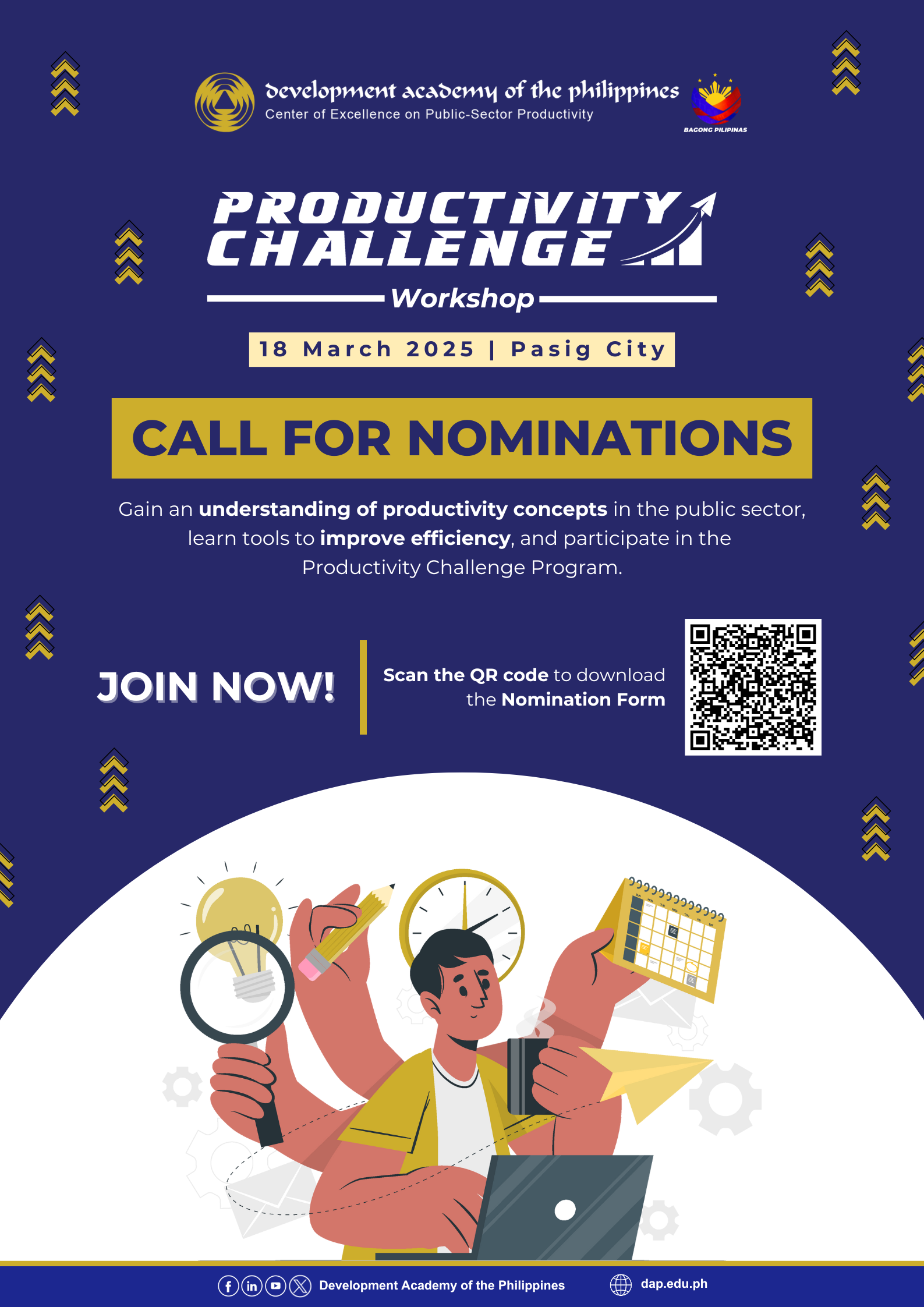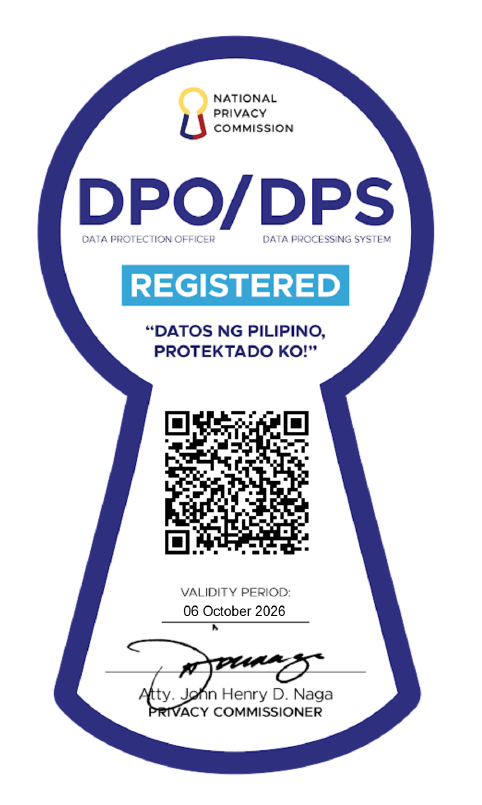A total of 24 participants from 11 public and private health institutions in the Philippines, including some representatives from the Department of Health, completed the Asian Productivity Organization (APO) e-learning course on customer satisfaction management for the health sector co-implemented by the Development Academy of the Philippines’ Center for Governance last December at the DAP Building in Pasig City.
The course aimed to help the participants understand customer satisfaction (CS) trends in the age of Industry 4.0, define CS management, show the relevance of CS and the necessity of providing consistent excellence, and present a model for CS standard development for the health sector that can be adopted and implemented by the participants.
The e-learning course was the second of two sessions coordinated by the national productivity organizations of APO member countries, which were responsible for identifying the participants from their respective countries that took part in the course through the videoconferencing platform of the APO. The first was participated in by representatives from Cambodia, Fiji, Mongolia, Sri Lanka, Thailand and Vietnam on November 12-15, 2018. This second run, meanwhile, had participants coming from Bangladesh, India, Islamic Republic of Iran, Nepal, Pakistan and the Philippines.
Lectures during the four-day training delivered by APO resource persons Kazuteru Kuroda from Japan and Harnek Singh from Singapore included CS management trends in the age of Industry 4.0, key skills in handling quality CS management, and good practices in CS management in the health sector. The Filipino participants visited the Philippine Heart Center, using it as model health institution, to learn about its health care system, structure, governance and service provision.
The highlight of the course was the sharing of best practices and experiences on CS management from the model health institutions visited by the participants from Bangladesh, India, Islamic Republic of Iran, Nepal, Pakistan and the Philippines.
The organizations from the Philippines represented in the training were the Department of Health, St. Luke’s Medical Center, Mariano Marcos Memorial Hospital and Medical Center, Ilocos Training and Regional Medical Center, Dr. Jose N. Rodriguez Memorial Hospital, Philippine Heart Center, Philippine General Hospital, Ospital ng Parañaque, Marikina Valley Medical Center, Philippine Children’s Medical Center, and St. Elizabeth Hospital, Inc.




